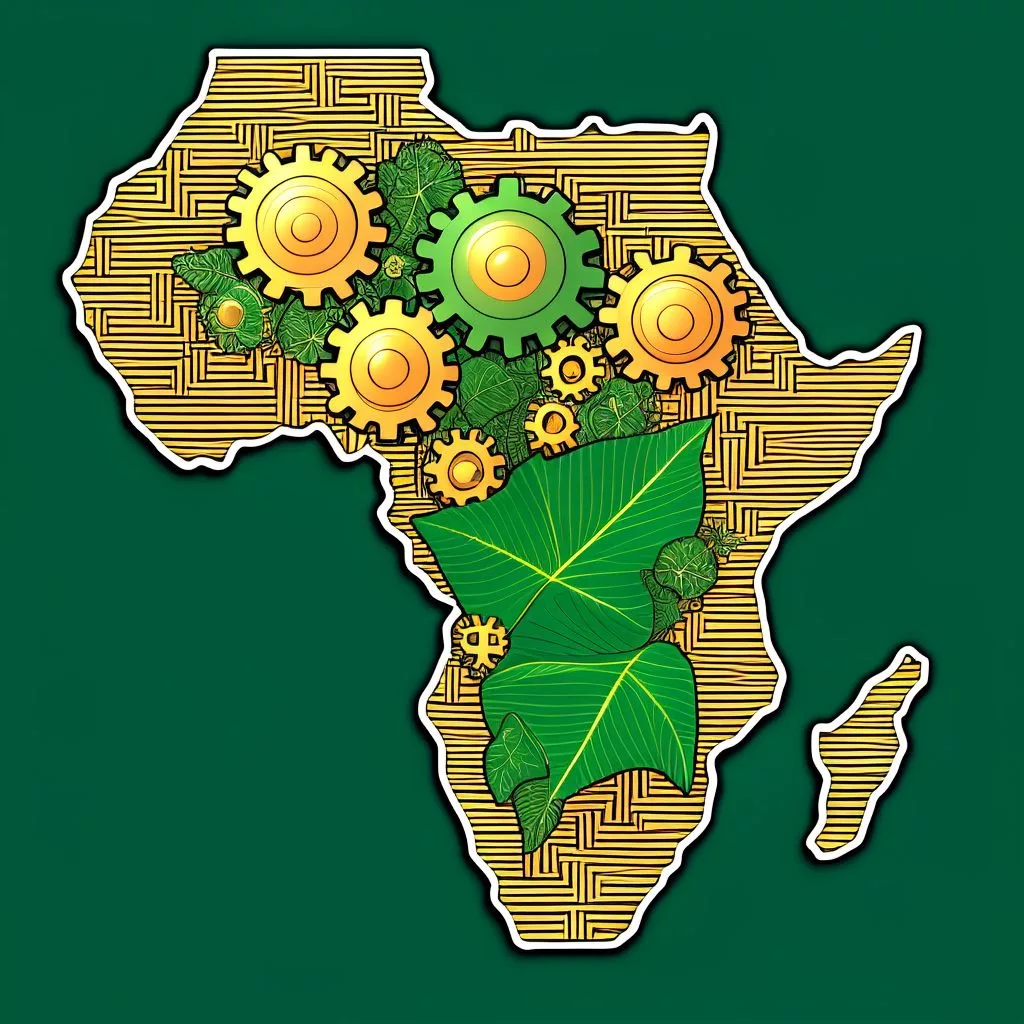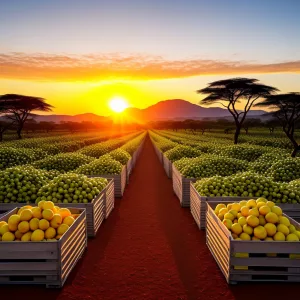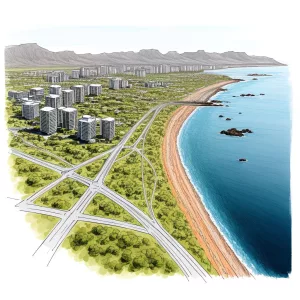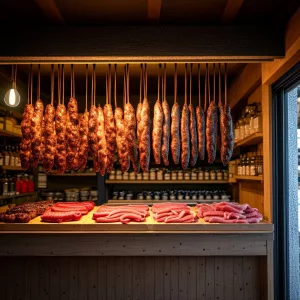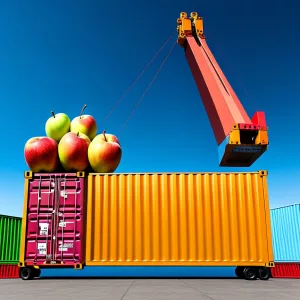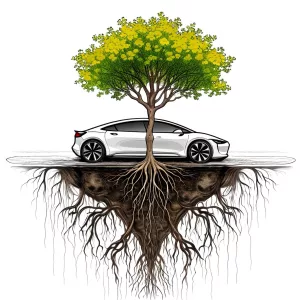South Africa is boldly transforming its economy by fixing energy supply, inviting private investment, and pushing green industries and digital access. President Ramaphosa calls for Africa to lead globally, not just follow, using partnerships like the African Continental Free Trade Area to boost trade and jobs. By working closely with countries like Japan, South Africa seeks fair trade and shared growth, focusing on innovation, youth, and sustainable progress. This new vision sees Africa as a confident, creative force shaping its own future.
Navigating Inflation: South Africa’s Struggle and Resilience in the Face of Rising Costs
South Africa is feeling the pinch as prices for food like meat and vegetables, as well as water and electricity, keep rising fast. Families face harder choices every day, trying to stretch their budgets while still putting meals on the table. Yet, despite these challenges, people show great strength and creativity finding new ways to cook, share resources, and save money. Even with tough times, South Africans keep pushing forward, proving their resilience and hope in the face of rising costs.
South African Agriculture’s Export Boom: A New Chapter in Trade with the United States
South Africa’s farms are buzzing with excitement as exports of fruits like citrus, grapes, and macadamia nuts to the United States jump by 26%, reaching a record $161 million in early 2025. This success comes from better port operations, teamwork between farmers and the government, and smart marketing. But rising US tariffs threaten to slow this growth, pushing South African farmers to innovate and explore new markets. Amid the fertile fields and busy packing sheds, hope shines bright for a future where tradition and technology work hand in hand.
Cape Town is planning to transform Erf 2187 in Green Point into a vibrant neighborhood with homes, shops, parks, and easy public transport. The city wants the area to be affordable and welcoming for people from all backgrounds, mixing new buildings with historic charm. Residents are invited to share their ideas to help shape this exciting project. With strong bus links and green spaces, Erf 2187 aims to become a lively, connected place where everyone can live, work, and play. This redevelopment is a big step toward a greener, fairer, and more inclusive Cape Town.
South Africa’s OutofHome (OoH) media sector is at an exciting turning point, aiming to grow while including more voices from all backgrounds. Public spaces filled with colorful billboards and murals tell stories of hope and change, connecting communities across the country. Despite challenges like inequality and tough regulations, the sector is pushing for new digital ideas and fair chances for small, blackowned businesses. The future calls for teamwork, innovation, and fairness so that every voice shines in South Africa’s vibrant public spaces.
Mango Airlines began in 2006 as a bright hope for cheap flights in South Africa, flying its bright orange planes and making travel easier for many people. But troubles at its parent company, rising costs, tough competition, and the COVID19 pandemic hit Mango hard. Despite efforts to save it, the airline closed in 2025, showing how hard it is for staterun airlines to survive without strong support and smart changes. Mango’s story reminds us that hope and hard work can take flight, but only if the winds of change blow just right.
Saving money in South Africa is very hard because prices for food, electricity, and transport keep going up, and many people live day to day just trying to survive. Families often juggle tight budgets, choosing basic needs over treats, and saving feels like a faroff dream. To cope, people take extra jobs, share resources, and find clever ways to stretch their money, but real savings remain rare. Despite these struggles, South Africans show strong spirit and hope, supporting each other through tough times.
The Savanna is a vibrant South Africaninspired store in the UK, started by Lisa Gardshol with a dream to bring authentic flavors and a sense of community to South African expats and curious locals. From a small shop in Raynes Park, it grew through hard work, smart use of technology, and a close connection to customers. When challenges like the 2008 crisis and COVID19 hit, The Savanna adapted quickly, launching online sales and controlling its supply chain. More than a shop, it’s a lively place where culture, taste, and friendship come together, showing how passion and smart thinking can change retail for the better.
Woolworths Tyger Valley is changing the way South Africans shop by blending food, fashion, beauty, and home in one bright, welcoming space. With ecofriendly design and special touches like free tailoring and denim engraving, it makes shopping feel personal and fun. The store is a lively community hub where people come not just to buy, but to explore, learn, and connect. It shows how modern stores can care for the planet and people, making every visit a special experience.
The Democratic Alliance’s plan for South Africa’s economic renewal is bold and clear. They want to fix the energy crisis so the lights stay on, change job rules to reward skill over race, and invest in better roads, ports, and internet. They also promise cleaner, honest local governments and tougher action against crime and corruption. Their goal is to create more jobs, grow the economy, and build hope for a brighter future where everyone has a fair chance to succeed.
Cape Town’s Atlantic Seaboard is buzzing with a new wave of luxury living. People from South Africa and around the world are snapping up sleek, secure apartments with stunning ocean and mountain views, drawn by a stylish, easy “lockandleave” lifestyle. This vibrant coastal stretch mixes natural beauty with lively city life, making it a hotspot for culture and investment. Prices are soaring as homes become scarcer, turning the area into a shining example of modern, upscale living by the sea.
South Africa’s richest people, like Johann Rupert, Nicky Oppenheimer, Koos Bekker, and Patrice Motsepe, have made their billions in areas like luxury goods, mining, technology, and banking. Their fortunes tell a story of hard work, smart risks, and deep ties to the country’s history, including its struggles and hopes. While they build businesses and support causes like conservation and economic empowerment, their wealth also highlights South Africa’s big gap between rich and poor. These billionaires shape the nation’s future but also remind us of the challenges still to be solved.
At a Crossroads: South Africa’s Apple and Pear Industry Faces the Cape Town Port Crisis
South Africa’s apple and pear industry is in trouble because the Port of Cape Town is facing big delays, slowing down shipments and causing extra costs. Cranes work slowly, refrigerated containers pile up with fees, and ships sometimes skip the port, all hurting farmers and workers. This chaos risks losing important markets in Europe and Asia and threatens many jobs in the Western Cape. Industry leaders and officials are pushing for quick fixes and longterm solutions to save this vital fruit export business. The future depends on faster, smarter port operations to keep South African fruit on shelves worldwide.
Schalk Burger Sr., once a fierce rugby star turned passionate winemaker, recently faced legal trouble for not filing important tax returns for over ten years. Despite his success on the rugby field and in the vineyards, he was fined R56,000 to settle the case, showing that no one is above the rules. His family’s story reminds us that running a business means more than passion it demands careful attention to everyday responsibilities. In the end, their journey is about learning, growing, and facing challenges with honesty and strength.
Minister Thembi Simelane is leading South Africa’s home building sector with a bold vision for change. She pushes for fairness by including women, youth, and people with disabilities, while making sure homes are safe and built well. After a tragic building collapse, she acted quickly to hold people accountable and rebuild trust. Her goal is clear: create homes that give everyone dignity and build a future where all South Africans can thrive.
South Africa’s automotive components industry stands at an important crossroads, facing big challenges like job losses, reliance on imports, and global trade problems. But there are also exciting opportunities through government support, regional growth in the Eastern Cape, and access to new markets across Africa. Leaders call for fresh ideas, teamwork, and fairness to ensure more women, young people, and historically excluded groups share in the industry’s future. With innovation and local investment, South Africa can turn these challenges into a strong, inclusive, and green automotive future.

